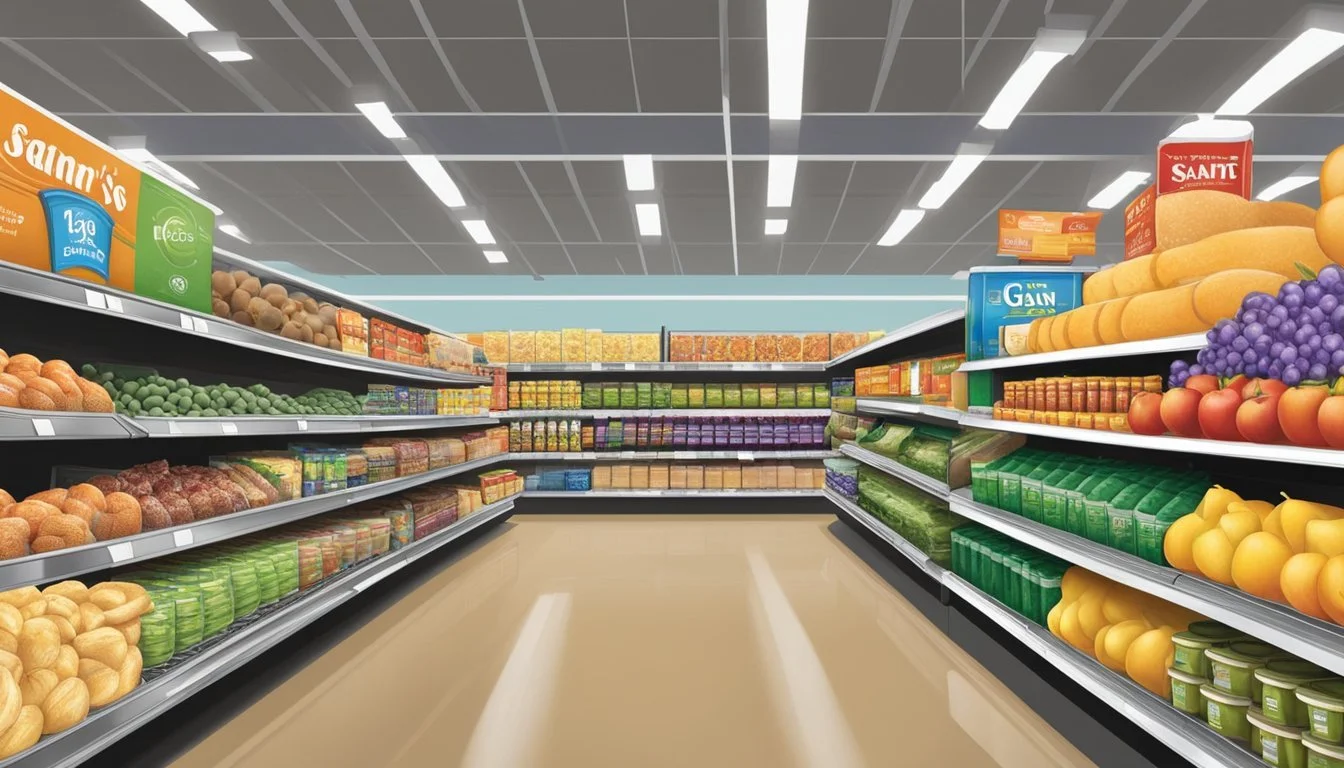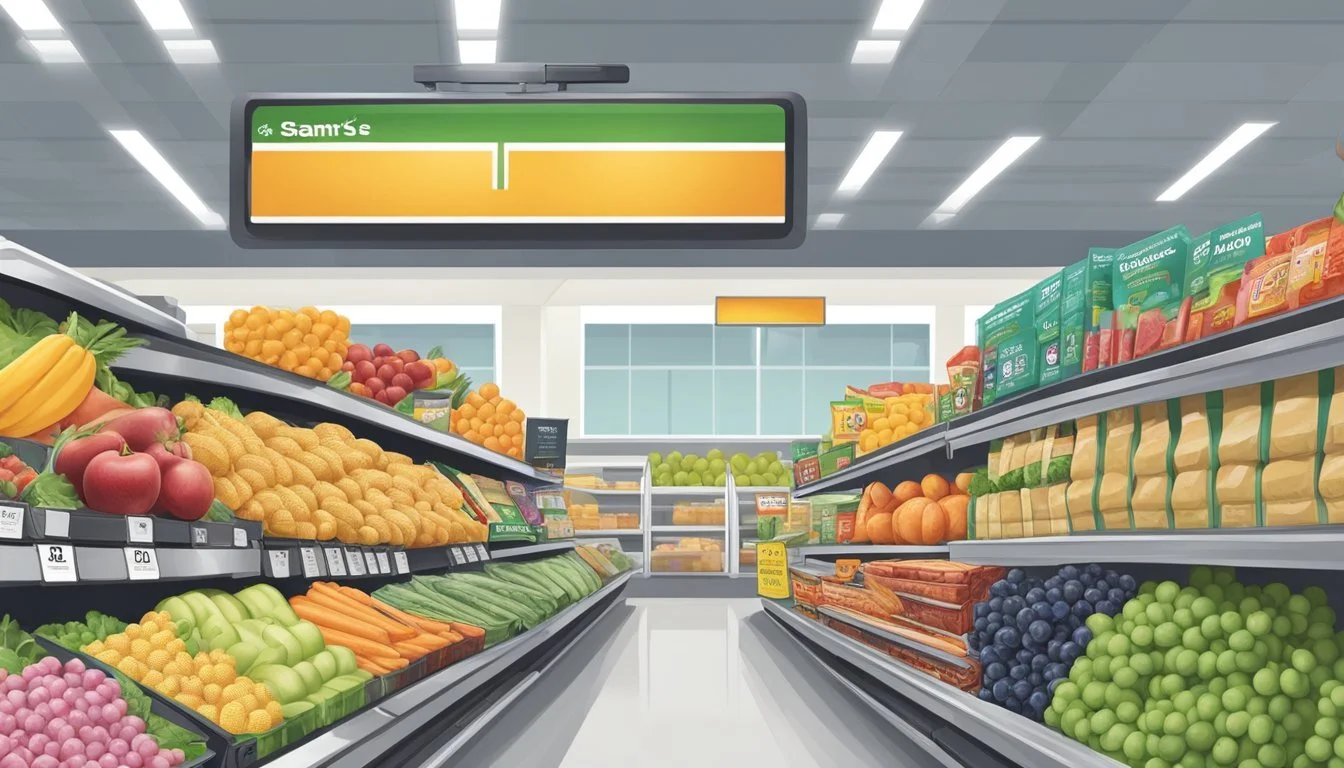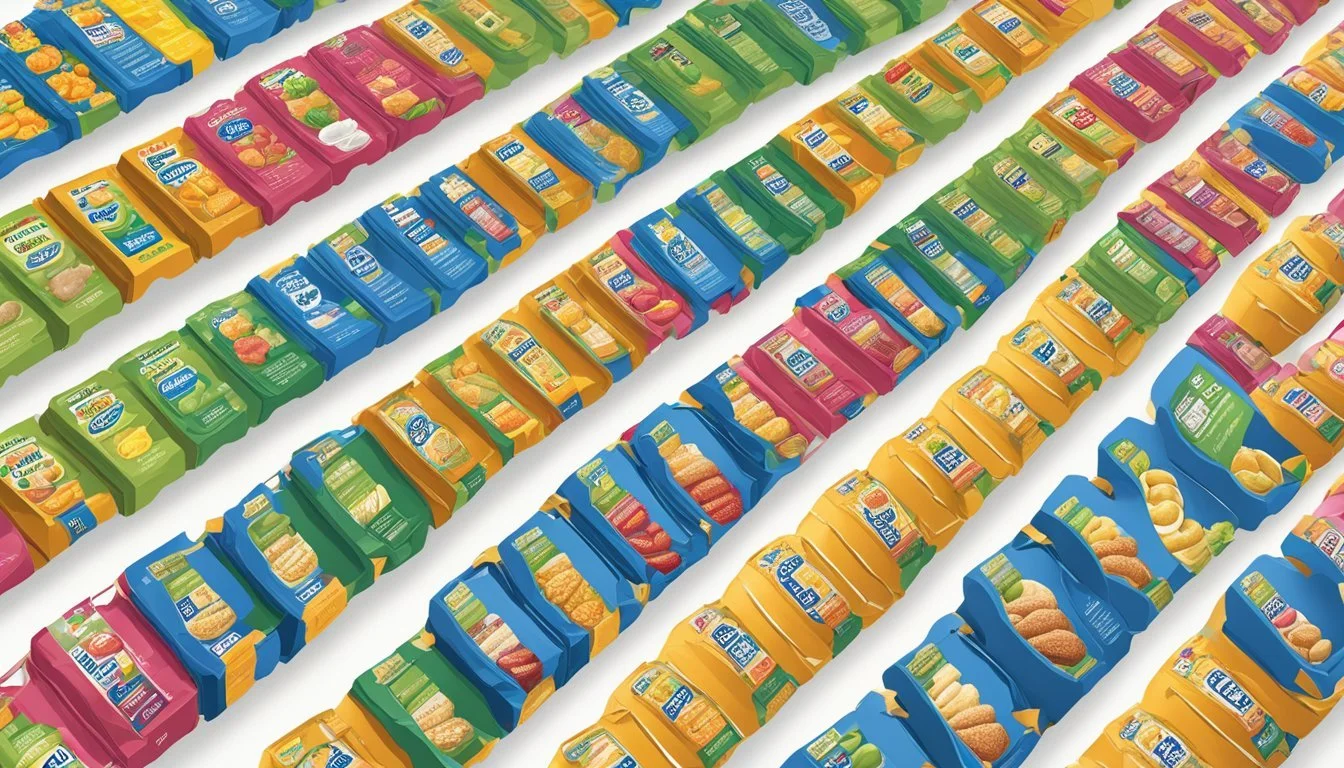Is Giant Food Cheaper Than Sam's Club?
A price comparison of two popular retailers
Giant Food and Sam's Club offer different shopping experiences and pricing structures. While Sam's Club is known for bulk purchases and membership perks, Giant Food provides traditional grocery options without requiring a membership.
Sam's Club often has lower prices on many items compared to Giant Food, especially for bulk purchases. This is largely due to the buying power of Sam's Club's parent company, Walmart. However, the cost savings at Sam's Club must be weighed against the annual membership fee, which starts at $50.
Giant Food may have lower prices on certain items, particularly during sales events. For example, Giant Food sometimes offers meat at $2 per pound, which can be cheaper than Sam's Club's regular pricing. Shoppers looking to maximize savings should compare prices on frequently purchased items and consider their shopping habits before deciding between the two stores.
Understanding Grocery Retailers
Grocery retailers come in various forms, each catering to different consumer needs and preferences. These include large warehouse clubs, traditional supermarkets, and specialty stores.
Types of Grocery Retailers
Grocery retailers range from small corner shops to massive warehouse clubs. Convenience stores offer quick grab-and-go items. Specialty stores focus on niche products like organic foods or international ingredients.
Discount stores provide lower-priced goods, often with a limited selection. Supercenters combine groceries with general merchandise under one roof.
Online grocery retailers have gained popularity, offering home delivery and pickup options.
Membership-Based Warehouse Clubs
Warehouse clubs like Sam's Club operate on a membership model. Members pay annual fees for access to bulk products at discounted prices.
These clubs typically offer a wide range of items beyond groceries, including electronics, clothing, and home goods. They often feature their own private label brands.
Warehouse clubs aim to provide significant savings through volume purchasing and reduced overhead costs. However, the large package sizes may not suit all households.
Traditional Supermarkets
Supermarkets like Giant Food offer a comprehensive grocery shopping experience. They stock a wide variety of food items, household goods, and personal care products.
These stores frequently feature fresh produce sections, bakeries, delis, and meat counters. Many supermarkets now include pharmacy services and prepared food options.
Traditional supermarkets often use loyalty programs and weekly sales to attract customers. They may offer a mix of national brands and store-brand alternatives at various price points.
Some supermarkets have expanded their offerings to include organic and specialty items to compete with niche retailers.
Comparison of Pricing Strategies
Giant Food and Sam's Club employ distinct pricing strategies to attract customers. These strategies impact overall costs for shoppers in different ways.
Bulk Purchases Vs. Individual Items
Sam's Club focuses on bulk purchases, offering larger quantities at lower per-unit prices. A 50-pound bag of dog food at Sam's Club costs $1.34 per pound, while a 7-pound bag at Walmart (Sam's Club's parent company) is $2.57 per pound. This demonstrates significant savings for bulk buyers.
Giant Food sells individual items, catering to shoppers who need smaller quantities. Their per-unit prices are typically higher than Sam's Club's bulk options. However, Giant Food's approach allows customers to buy only what they need, potentially reducing waste.
For families or businesses that can utilize large quantities, Sam's Club often provides better value. Those with limited storage or who prefer variety may find Giant Food's individual item pricing more suitable.
Membership Fees and Store Brands
Sam's Club requires a membership fee, starting at $45 annually for a basic membership. This fee grants access to their lower prices and exclusive deals. Giant Food does not charge a membership fee, allowing anyone to shop freely.
Both retailers offer store brands to provide cost-effective alternatives to national brands. Sam's Club's Member's Mark products often come in larger sizes, while Giant Food's store brands are available in standard sizes.
Store brands at both retailers typically offer savings compared to national brands. Sam's Club's bulk packaging of store brand items can lead to even greater cost reductions for consumers willing to buy in quantity.
Discounts and Deals
Sam's Club provides regular discounts and deals to members, often featuring significant savings on electronics, appliances, and seasonal items. Their "Instant Savings" program offers limited-time discounts on select products.
Giant Food uses a loyalty card program, offering personalized deals and digital coupons to cardholders. They frequently run weekly specials and promotional pricing on various items throughout the store.
Sam's Club's deals tend to focus on larger quantities and higher-ticket items. Giant Food's promotions are more diverse, covering a wide range of products in various sizes to appeal to different shopper needs.
Both stores offer competitive pricing on fresh produce and meat, with fluctuating discounts based on seasonality and supply.
Quality and Variety of Products
Sam's Club and Giant Food offer distinct product selections, each with its own strengths. Sam's Club focuses on bulk quantities, while Giant Food provides a wider range of everyday grocery items.
Comparing Produce Quality
Sam's Club's produce section typically features larger quantities of fruits and vegetables. The quality is generally good, with fresh items sourced from reputable suppliers. Giant Food, on the other hand, often offers a broader variety of produce, including more exotic and seasonal options.
Giant Food's produce department usually has a larger selection of organic fruits and vegetables. This can be appealing to health-conscious shoppers who prioritize organic options.
Sam's Club's bulk packaging may lead to better value for larger families or those who consume produce quickly. However, Giant Food's smaller quantities can be more suitable for individuals or smaller households.
Meat and Dairy Offerings
Sam's Club excels in offering large packages of meat at competitive prices. Their selection includes bulk packs of chicken, beef, and pork. The quality of meat at Sam's Club is generally consistent and reliable.
Giant Food typically provides a wider variety of cuts and package sizes in their meat department. This allows for more flexibility in meal planning and portion control.
In the dairy category, Sam's Club offers larger quantities of milk, cheese, and yogurt. Giant Food usually has a more diverse selection of dairy products, including specialty cheeses and plant-based alternatives.
Both stores maintain high standards for their dairy offerings, ensuring freshness and quality.
Organic and Specialty Items
Giant Food often has a more extensive selection of organic and specialty items compared to Sam's Club. This includes a wider range of gluten-free, vegan, and international products.
Sam's Club's organic offerings are growing, but they tend to focus on popular items in larger quantities. Their selection of specialty items is more limited but can include gourmet cheeses and premium meats.
Giant Food's specialty sections are typically more diverse, catering to various dietary needs and preferences. This can be particularly appealing to shoppers with specific dietary requirements or those looking for unique ingredients.
Both stores carry their own private label organic products, which can offer good value for consumers seeking organic options at lower prices.
Service and Shopping Experience
Giant Food and Sam's Club offer distinct service models and shopping experiences. Their approaches to customer service and store layouts impact the overall convenience for shoppers.
In-Store Service
Giant Food provides a traditional grocery store experience with dedicated customer service counters. Staff members are typically available throughout the store to assist shoppers. Checkout lines move efficiently, with both staffed registers and self-checkout options available.
Sam's Club operates on a membership model, which influences its service approach. Employees are present to check membership cards at entry. The club focuses on a self-service model, with fewer staff on the floor compared to traditional grocery stores. Checkout lines can be longer during peak hours due to larger cart sizes.
Shopping Convenience
Giant Food stores are often located in residential areas, making them easily accessible for quick trips. The layout is familiar to most shoppers, with clearly organized aisles and departments. Product selection caters to everyday needs and includes a mix of national brands and store-brand items.
Sam's Club locations are usually in larger commercial areas, requiring planned trips. The warehouse layout features wide aisles and bulk displays. Shopping carts are larger to accommodate bulk purchases. The club offers a mobile app for easy reordering and contactless checkout, enhancing convenience for tech-savvy members.
Membership Perks and Rewards
Sam's Club and Giant Food both offer membership programs with exclusive benefits. These include special deals and rewards for loyal customers.
Exclusive Deals for Members
Sam's Club provides unique advantages to its members. The basic Club membership costs $50 annually, while the Plus membership is $110 per year. Both tiers grant access to all Sam's Club locations and online shopping.
Plus members enjoy early shopping hours and free shipping on most items. They also receive exclusive discounts on select services like optical and pharmacy.
Giant Food's membership program, while different, offers its own set of perks. Their free loyalty card provides digital coupons and personalized deals based on shopping habits.
Rewards Programs
Sam's Club Plus members earn 2% cash back on qualifying purchases, up to $500 annually. This reward can be redeemed for future purchases or as cash.
The basic Club membership does not include cash back benefits but still provides access to members-only pricing and bulk buying options.
Giant Food's rewards program allows customers to earn points on purchases. These points can be redeemed for gas savings or groceries. Special promotions often offer bonus points on select items.
Both stores frequently run limited-time offers for additional savings or rewards to incentivize member engagement and loyalty.
Additional Services
Sam's Club and Giant Food offer services beyond groceries to enhance customer convenience and value. Both retailers provide pharmacy and automotive options, though with some key differences in scope and pricing.
Pharmacy and Health Services
Sam's Club pharmacies offer competitive prescription drug pricing for members. They carry a wide selection of generic and brand-name medications. Sam's Club's Member's Mark brand includes over-the-counter health products at lower costs. The club provides free health screenings and immunizations at select locations.
Giant Food pharmacies are open to all shoppers without a membership requirement. They offer prescription services, vaccinations, and medication counseling. Giant Food frequently runs promotions on common prescriptions and provides a rewards program for pharmacy purchases.
Automotive and Tire Centers
Sam's Club operates full-service tire and auto centers at many locations. They offer tire installation, oil changes, battery services, and other basic maintenance. Members receive discounted pricing on tires and automotive services.
Giant Food does not have dedicated auto centers. However, some locations sell a limited selection of automotive supplies and fluids. For extensive auto services, Giant Food customers would need to visit specialized auto shops or dealerships.
Sam's Club's automotive offerings provide added value for members who can bundle these services with their shopping trips. This convenience is not available through Giant Food.
Financial Considerations for Shoppers
Comparing costs between Giant Food and Sam's Club involves examining bulk buying benefits, membership fees, and overall shopping strategies. Savvy consumers can find significant savings by carefully evaluating these factors.
Evaluating Bulk Buying Savings
Sam's Club offers substantial savings through bulk purchasing. Shoppers can often find lower costs per pound on many items compared to traditional grocery stores like Giant Food. For example, a 10-pound bag of rice at Sam's Club may cost less per pound than a 2-pound bag at Giant Food.
Bulk buying can lead to significant reductions in grocery bills for families or individuals who frequently use certain products. However, it's crucial to consider storage space and product shelf life. Perishable items bought in bulk may spoil before use, potentially negating any savings.
Assessing Annual Fees and Potential Savings
Sam's Club requires an annual membership fee, typically ranging from $45 to $100. This upfront cost must be factored into overall savings calculations. For frequent shoppers, the membership fee can be quickly offset by the savings on bulk purchases.
To determine if a Sam's Club membership is cost-effective:
Calculate average monthly grocery spending
Compare prices of regularly purchased items at both stores
Estimate potential annual savings
Subtract the membership fee from projected savings
If the result is positive, a Sam's Club membership may be financially beneficial.
Finding Cost-Effective Shopping Methods
Combining shopping strategies can maximize savings. Some effective methods include:
Using Sam's Club for non-perishable bulk items and household goods
Shopping at Giant Food for fresh produce and weekly specials
Taking advantage of Giant Food's loyalty program for additional discounts
Comparing unit prices between stores to ensure the best deals
Shoppers should also consider the frequency of shopping trips. Fewer trips to Sam's Club for bulk items can save time and transportation costs. However, more frequent visits to Giant Food may be necessary for fresh items.
Coupons and promotional offers from both stores can further reduce costs. Sam's Club often provides instant savings on select items, while Giant Food regularly offers digital coupons through its app.
Grocery Shopping in Context
Grocery shopping patterns and costs are influenced by broader economic trends and individual consumer behaviors. These factors shape how retailers like Giant Food and Sam's Club price their products and how customers approach their shopping decisions.
Economic Factors Affecting Prices
Inflation plays a significant role in grocery pricing. As production and transportation costs rise, retailers often adjust their prices accordingly. In 2024, many families are experiencing tighter budgets due to increased living expenses. This economic pressure has led some shoppers to seek out bulk purchasing options at warehouse clubs like Sam's Club to maximize their savings.
Seasonal fluctuations also impact grocery prices. Produce costs tend to be lower when items are in season locally. Giant Food may have an advantage in offering fresher, locally-sourced produce at competitive prices during peak growing periods.
Customer Shopping Habits
Shopping habits have evolved in response to economic pressures and changing lifestyles. Many customers now prioritize value and convenience. Sam's Club's bulk offerings appeal to larger families or those who prefer to stock up less frequently.
On the other hand, Giant Food attracts shoppers who value variety and the ability to purchase smaller quantities. Some customers prefer more frequent trips to buy fresh ingredients for immediate use.
Online grocery ordering and delivery services have gained popularity, influencing how both retailers operate. Giant Food has expanded its digital presence to compete with Sam's Club's established e-commerce platform.
Analysis of Competitive Landscape
The retail landscape is fiercely competitive, with several major players vying for customer loyalty and market share. Giant Food and Sam's Club face challenges from other retail giants and must navigate changing consumer preferences.
Comparing with Other Retail Giants
Walmart, Costco, and Target are key competitors in the retail space. Walmart offers everyday low prices on a wide range of products. Costco operates on a membership model similar to Sam's Club, providing bulk items at discounted rates. Target focuses on a more upscale shopping experience with its own private label brands.
Amazon has disrupted traditional retail with its vast online marketplace and quick delivery options. Its Prime membership program offers benefits like free shipping and exclusive deals.
Giant Food competes primarily in the grocery sector, while Sam's Club spans multiple categories. Both face pressure to match prices and offerings from these larger competitors.
Brand Loyalty and Shopping Trends
Consumer shopping habits have evolved, with many seeking value and convenience. Sam's Club's membership model fosters loyalty through exclusive deals and bulk savings. Giant Food relies on its local presence and fresh offerings to maintain customer relationships.
Private label brands have gained popularity as cost-effective alternatives to national brands. Both retailers have developed their own store brands to compete on price and quality.
Online grocery shopping and delivery services have become increasingly important. Retailers must invest in digital platforms to meet consumer demands for convenience and safety.
Price comparison apps and websites have made it easier for shoppers to find the best deals across multiple stores, intensifying competition among retailers.
Consumer Insights and Recommendations
Savvy shoppers can maximize savings when comparing Giant Food and Sam's Club. Strategic purchasing decisions and leveraging available discounts can lead to significant cost reductions on grocery items and household essentials.
Effective Shopping Strategies
Compare unit prices between Giant Food and Sam's Club to identify the best deals. Sam's Club often offers lower prices on bulk items like paper towels and cleaning supplies. Giant Food may have better prices on smaller quantities of perishables. Make a list before shopping to avoid impulse purchases. Consider splitting bulk purchases with friends or family to take advantage of Sam's Club's discounted prices without waste. Buy non-perishable items when they're on sale, even if not immediately needed. Check both stores' weekly ads to plan purchases around sales cycles.
Leveraging Coupons and Discounts
Utilize store loyalty programs at both Giant Food and Sam's Club. Giant Food's gas rewards program can lead to substantial savings at the pump. Sam's Club offers exclusive members-only savings events throughout the year. Stack manufacturer coupons with store sales at Giant Food for maximum discounts. Look for instant savings offers on rotisserie chicken and other prepared foods at Sam's Club. Use cash back apps and credit cards that offer bonus rewards on grocery purchases. Sign up for email newsletters from both stores to receive exclusive coupons and promotions. Always check expiration dates on coupons and plan shopping trips accordingly.










